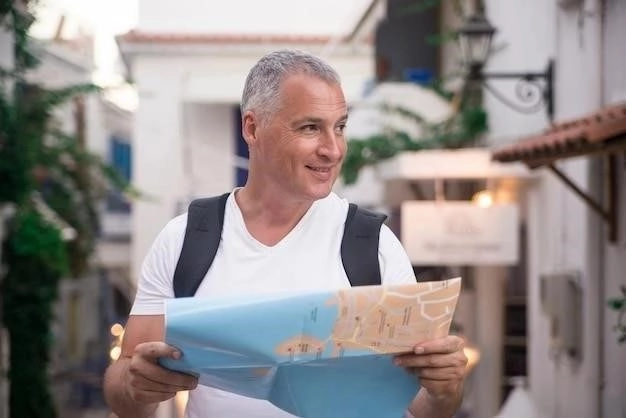Welcome to the enchanting island nation of Tuvalu, a hidden gem nestled in the heart of the Pacific Ocean. Comprising nine small coral islands, this remote paradise offers a serene escape for the discerning traveler seeking tranquility and unspoiled beauty. Immerse yourself in the vibrant Polynesian culture, explore pristine beaches shaded by swaying palm trees, and witness breathtaking sunsets over the azure waters. This comprehensive travel guide will provide you with all the essential information to plan an unforgettable journey to this secluded corner of the world.
Planning Your Trip

A journey to the secluded islands of Tuvalu requires meticulous planning to ensure a seamless and rewarding experience. Given the nation’s remote location and limited tourism infrastructure, early preparation is essential.
Begin by researching the most suitable time to visit, taking into account the weather patterns and your preferred activities. The dry season, from May to October, generally offers the most favorable conditions for outdoor exploration.
Next, delve into the visa and entry requirements, as these vary depending on your nationality. Citizens of numerous countries benefit from visa-free entry for a specified period, while others may need to obtain a visa in advance or upon arrival. Consult with your local Tuvaluan embassy or consulate to confirm the specific requirements for your citizenship.
Given the limited flight options to Tuvalu, booking flights well in advance is crucial, especially during peak seasons. Fiji Airways operates flights to Funafuti International Airport (FUN) from Nadi, Fiji, typically a few times a week. Be prepared for potential flight disruptions or schedule changes due to the airline’s reliance on demand and weather conditions.
Accommodation options in Tuvalu are limited primarily to guesthouses and small-scale hotels, mainly concentrated in Funafuti. Secure your preferred lodging well in advance, particularly if your travel dates coincide with any local events or holidays.
Finally, pack light, prioritizing essential items such as light clothing, swimwear, reef-safe sunscreen, insect repellent, a hat, sunglasses, and comfortable walking shoes. Consider packing a waterproof bag to protect your belongings during boat trips or unexpected showers. As Tuvalu uses the Australian dollar, ensure you have an adequate supply of local currency or explore credit card acceptance at your chosen accommodations and eateries.
Visas and Entry Requirements
Prior to embarking on your journey to Tuvalu, it is imperative to ensure you possess the necessary documentation for entry. Visa requirements vary depending on your nationality, with citizens of certain countries enjoying visa-free access for a limited period.
Nationals of the following countries are granted visa-free entry for a maximum stay of 90 days: European Union countries, Iceland, Norway, Liechtenstein, Switzerland, United Kingdom, Australia, New Zealand, Fiji, Samoa, Tonga, Cook Islands, Niue, Vanuatu, Solomon Islands, Marshall Islands, Micronesia, Palau, Kiribati, Nauru, and several others.
Citizens of most other countries, including the United States, Canada, and Japan, are eligible for a visa on arrival, granted for a stay of up to 30 days. To obtain a visa on arrival, you must present a passport valid for at least six months beyond your intended stay, a return or onward ticket, and evidence of sufficient funds to cover your expenses while in Tuvalu.
However, it is essential to note that citizens of a few countries, including Afghanistan, Iran, Iraq, Somalia, and Yemen, are required to obtain a visa in advance from a Tuvaluan embassy or consulate. It is highly recommended to contact the nearest Tuvaluan diplomatic mission to confirm the specific visa requirements well in advance of your planned trip.
Furthermore, ensure your passport has at least two blank pages for entry and exit stamps. Upon arrival, immigration officials may request proof of accommodation bookings and travel insurance, so it is advisable to have these documents readily available.
For the most up-to-date and accurate information on visa requirements and entry procedures, it is always recommended to consult with the Tuvaluan Ministry of Foreign Affairs or the nearest Tuvaluan embassy or consulate in your home country.

Best Time to Visit
Choosing the optimal time to embark on your Tuvaluan adventure is paramount for a delightful experience, as the islands possess a tropical climate influenced by trade winds and occasional rainfall.
The dry season, spanning from May to October, is widely regarded as the best time to visit Tuvalu. During these months, the islands bask in abundant sunshine, low humidity, and minimal rainfall, creating ideal conditions for outdoor pursuits such as swimming, snorkeling, and exploring the captivating islets.
From November to April, Tuvalu experiences its wet season, characterized by higher temperatures, increased humidity, and a greater likelihood of rainfall. While showers are often brief and heavy, they can occasionally disrupt travel plans. However, this period also offers a unique opportunity to witness the islands’ lush vegetation in full bloom.
It is worth noting that Tuvalu can be affected by cyclones, primarily between November and April. While these events are relatively infrequent, it is advisable to stay informed about weather forecasts and heed any official warnings or advisories issued by local authorities.
Ultimately, the best time to visit Tuvalu depends on your personal preferences and priorities. If you seek sunshine and dry weather for outdoor activities, the dry season is ideal. However, if you are intrigued by the prospect of witnessing the islands’ verdant landscapes and don’t mind occasional showers, the wet season can be equally rewarding.
Getting There and Around
Reaching the secluded islands of Tuvalu requires careful planning, as air travel is the primary mode of access. Fiji Airways operates international flights to Funafuti International Airport (FUN), the country’s sole international gateway, situated on the capital island of Funafuti.
Most travelers transit through Nadi International Airport (NAN) in Fiji, a major hub for Pacific Island destinations. Fiji Airways offers regular flights between Nadi and Funafuti, typically a few times a week. It is essential to note that flight schedules may vary, and booking well in advance is highly recommended, especially during peak seasons or for connecting flights.
Once you arrive at Funafuti International Airport, local transportation options are limited. Taxis are available for transfers to your accommodation, and it is advisable to negotiate the fare beforehand. Renting a car is not a common practice in Tuvalu, and the road network is primarily concentrated in Funafuti.
To explore the outer islands, domestic flights operated by a local airline are available. However, these flights are infrequent and subject to demand and weather conditions. Alternatively, you can inquire about boat charters, which offer a more adventurous way to experience the archipelago’s pristine beauty.
Within Funafuti, walking and cycling are the most convenient ways to get around. The island is relatively small, and most points of interest are within walking distance. Bicycles are available for rent at some guesthouses and local shops, providing an enjoyable way to explore the island at your own pace.

Accommodation
While Tuvalu boasts a serene and unspoiled beauty, it’s essential to note that accommodation options are limited compared to more developed tourist destinations. The majority of lodgings are concentrated in Funafuti, the capital island, and range from modest guesthouses to small-scale hotels.
Guesthouses in Tuvalu typically offer basic yet comfortable rooms, often with shared bathroom facilities. They provide a more affordable option for budget-conscious travelers seeking an authentic local experience. Some guesthouses may also offer meals upon request, allowing you to savor traditional Tuvaluan cuisine.
For those seeking a higher level of comfort and amenities, a few small hotels in Funafuti cater to visitors. These establishments generally offer air-conditioned rooms with en suite bathrooms, as well as amenities such as restaurants and bars. However, it’s important to note that luxury accommodations are not readily available in Tuvalu.
Regardless of your chosen accommodation, it’s advisable to book well in advance, especially during peak seasons or if your travel dates coincide with local events. Due to the limited number of rooms available, securing your preferred lodging early is essential for a smooth and stress-free trip.
When selecting your accommodation, it’s helpful to consider factors such as proximity to the airport, town center, or beaches, as well as the availability of amenities that align with your preferences. Reading reviews from previous guests can also provide valuable insights into the quality and comfort of different establishments.
Experiencing Tuvalu
Venturing to Tuvalu offers a unique opportunity to immerse oneself in a culture seemingly untouched by the frenetic pace of modern life. The islands exude a captivating charm, inviting visitors to embrace a slower, more tranquil existence.
Life in Tuvalu revolves around the rhythm of the sea, and the warmth and hospitality of the Tuvaluan people are deeply ingrained in their way of life. Embrace the chance to engage with locals, sharing stories and gaining insights into their customs and traditions. Attend a traditional dance performance, known as a “fatele,” where vibrant costumes and rhythmic movements bring ancient legends to life.
The islands’ pristine beaches, fringed with swaying palm trees and lapped by crystal-clear turquoise waters, offer an idyllic setting for relaxation and rejuvenation. Indulge in leisurely strolls along the shore, feeling the soft white sand between your toes, or simply unwind beneath the shade of a coconut palm, listening to the gentle lapping of the waves.
Beyond the main island of Funafuti, a world of untouched beauty awaits exploration. Embark on a boat trip to the outer islands, where time seems to stand still. Discover secluded lagoons teeming with marine life, marvel at the vibrant coral reefs, or simply bask in the serenity of these unspoiled havens.
As you explore Tuvalu, remember to approach each encounter with respect and sensitivity. The Tuvaluan people take pride in their cultural heritage, and by embracing their customs and traditions, you’ll create lasting memories and forge genuine connections.
Culture and Customs
Embarking on a journey to Tuvalu offers a rare opportunity to immerse oneself in a rich and ancient Polynesian culture, where traditions are deeply cherished and hospitality is woven into the fabric of daily life. To truly embrace the essence of Tuvalu, it is essential to approach their customs and traditions with respect and sensitivity.

Family plays a paramount role in Tuvaluan society, and communal bonds are strong. Visitors will quickly notice the warmth and generosity extended to both locals and guests. When greeting someone, a simple handshake or a friendly smile is customary. However, it is considered polite to address elders or those in positions of authority with the respectful title “Te” before their name.
Clothing is typically modest, reflecting the islanders’ cultural values. When venturing beyond the beaches or your accommodation, it is advisable to dress respectfully, covering shoulders and knees. Wearing swimwear should be confined to beach areas or when engaging in water activities.

The traditional “fatele,” a captivating dance performance, holds a significant place in Tuvaluan culture. These performances often depict historical events, ancestral stories, or the beauty of the natural world. If you have the opportunity to witness a “fatele,” embrace the vibrant costumes, rhythmic movements, and the cultural richness it embodies.
When interacting with locals, remember that patience and a genuine interest in their way of life will be met with warmth and appreciation. Learning a few basic Tuvaluan phrases, such as “Talofa” (hello) or “Fakafetai” (thank you), will undoubtedly enhance your interactions and demonstrate your respect for their culture.
Food and Drink
Embarking on a culinary journey in Tuvalu offers a glimpse into the simple yet flavorful cuisine of this remote Pacific island nation. With fresh seafood forming the cornerstone of many dishes, the cuisine reflects the islands’ close relationship with the ocean and the abundance of the surrounding waters.
One of the most popular and traditional dishes is “Palusami,” a flavorful combination of taro leaves, coconut cream, onions, and often corned beef or fish, cooked in an underground oven. The result is a rich and aromatic dish that embodies the essence of Tuvaluan flavors.
Freshly caught fish, including tuna, snapper, and parrotfish, is frequently grilled, pan-fried, or baked, often seasoned with simple yet flavorful combinations of herbs, spices, and coconut milk. The delicate flavors of the fish shine through, offering a taste of the ocean’s bounty.
Coconut, a staple ingredient in Tuvaluan cuisine, is used in various forms, from fresh coconut milk to grated coconut flesh, adding a subtle sweetness and creamy texture to both savory and sweet dishes. “Pulaka,” a starchy root vegetable similar to taro, is another staple, often boiled, baked, or fried and served as a side dish.While dining options in Tuvalu are limited compared to more developed destinations, small local restaurants and eateries offer a taste of authentic Tuvaluan cuisine. In addition to traditional dishes, you’ll also find some international fare, including Chinese and Western-style meals.
Things to Do
While Tuvalu may be renowned for its tranquility and unspoiled beauty, there are still numerous engaging activities to enhance your experience on these idyllic islands. From cultural immersion to exploring pristine landscapes, Tuvalu offers a unique blend of relaxation and exploration.
For those seeking a deeper understanding of Tuvaluan heritage, a visit to the Tuvalu Philatelic Bureau is a must. Admire a remarkable collection of Tuvaluan stamps, renowned for their intricate designs and vibrant colors, often depicting the islands’ unique flora, fauna, and cultural traditions.
Immerse yourself in the local culture by attending a traditional “fatele” dance performance. These captivating displays of rhythmic movements, accompanied by traditional music and vibrant costumes, offer a glimpse into the heart of Tuvaluan storytelling and ancestral heritage.
Escape the tropical heat with a visit to the Funafuti Marine Conservation Area. This protected marine sanctuary boasts an abundance of coral reefs, vibrant marine life, and crystal-clear waters, making it an ideal spot for snorkeling, diving, or simply observing the underwater wonders.
Rent a bicycle and embark on a leisurely exploration of Funafuti, the capital island. Cycle along the coastal roads, feeling the gentle sea breeze, and discover hidden coves, traditional villages, and local shops selling handicrafts and souvenirs.
For a truly immersive experience, consider venturing beyond Funafuti to explore the outer islands. Arrange a boat trip to discover secluded lagoons, pristine beaches, and traditional villages where life unfolds at a slower pace.
Water Activities
Surrounded by the glistening turquoise waters of the Pacific Ocean, Tuvalu presents a pristine aquatic playground for water enthusiasts and those seeking solace in nature’s embrace. The islands’ coral reefs, teeming with marine life, offer exceptional opportunities for snorkeling and diving, while the calm lagoons provide a serene setting for kayaking and stand-up paddleboarding.
Grab a mask, snorkel, and fins, and embark on an unforgettable underwater adventure exploring Tuvalu’s vibrant coral gardens. Encounter a kaleidoscope of colorful fish, graceful sea turtles, and an array of other marine creatures that call these reefs home. The calm, clear waters provide excellent visibility, allowing for unforgettable glimpses into this underwater paradise.
For more experienced divers, several dive operators in Funafuti offer excursions to deeper reefs, walls, and even World War II wrecks, revealing a different facet of Tuvalu’s underwater realm. Explore the depths, encountering larger pelagic species and marveling at the coral formations that have thrived for centuries.
For a more leisurely aquatic adventure, rent a kayak or stand-up paddleboard and glide across the tranquil lagoons. Paddle along the coastline, discovering hidden coves and pristine beaches, or simply bask in the serenity of the surroundings, feeling the gentle sea breeze and the warmth of the tropical sun.
Whether you seek thrilling underwater encounters or tranquil moments on the water’s surface, Tuvalu’s pristine waters offer an unforgettable aquatic playground for all levels of experience.

Essential Information
Before embarking on your journey to the enchanting islands of Tuvalu, familiarizing yourself with some essential information will ensure a smoother and more enjoyable travel experience.
Currency: The official currency of Tuvalu is the Australian dollar (AUD). It is advisable to carry sufficient cash, particularly smaller denominations, as credit card facilities may be limited to larger establishments in Funafuti.
Electricity: The standard voltage in Tuvalu is 240 volts, with a frequency of 50 Hz. The islands use the Australian three-pin plug system, so travelers from other countries may require an adapter.
Language: Tuvaluan and English are the official languages of Tuvalu. While English is widely spoken, particularly in tourism-related businesses, learning a few basic Tuvaluan phrases will enhance your interactions with locals.
Health: It’s recommended to consult with your healthcare provider regarding necessary vaccinations and health precautions well in advance of your trip. Pack a basic medical kit containing essential medications, insect repellent, sunscreen, and any personal hygiene items.
Safety: Tuvalu enjoys a relatively low crime rate. However, exercising common sense, safeguarding your valuables, and being mindful of your surroundings are always advisable. Inform your accommodation of your whereabouts when venturing out alone, especially at night.
Health and Safety
Prioritizing your health and safety while traveling to Tuvalu ensures a worry-free and enjoyable experience. While Tuvalu generally poses minimal health risks, taking necessary precautions is essential, particularly given the islands’ remote location and limited medical facilities.
Vaccinations: Consult with your healthcare provider regarding recommended vaccinations at least four to six weeks before your trip. Routine vaccinations, such as Hepatitis A and B, Typhoid, and Tetanus, are generally advised. Depending on your itinerary or specific health concerns, your doctor may recommend additional vaccines.
Food and Water Safety: To prevent traveler’s diarrhea, consume bottled water for drinking, brushing your teeth, and even washing fruits and vegetables. Be cautious with food from street vendors, opting for well-cooked meals from reputable establishments.
Sun Protection: The tropical sun in Tuvalu is intense. Apply a high-SPF sunscreen liberally and frequently, wear a wide-brimmed hat and sunglasses, and seek shade during the hottest hours of the day.
Medical Facilities: Medical facilities in Tuvalu are limited. The main hospital is located in Funafuti, but specialized care may require evacuation to Fiji or other neighboring countries. Ensure you have comprehensive travel insurance that covers medical emergencies and evacuation if needed.
Money and Currency
When planning your financial arrangements for your Tuvaluan adventure, it’s essential to be aware of the local currency and the availability of financial services on the islands.
Currency: The official currency of Tuvalu is the Australian dollar (AUD). It is advisable to arrive with a sufficient amount of Australian dollars in a variety of denominations, as exchanging other currencies might prove difficult.
Credit Cards: Credit card acceptance is limited in Tuvalu, primarily confined to larger hotels, restaurants, and shops in Funafuti. Smaller establishments and businesses on the outer islands may not accept credit cards at all. It is crucial to carry sufficient cash, especially when traveling outside of Funafuti.
ATMs: There are a few ATMs available in Funafuti, primarily located near banks and commercial areas. However, it’s essential to note that ATMs may not always be reliable, and it’s wise not to solely rely on them for accessing cash.
Exchanging Money: Currency exchange services are available at the National Bank of Tuvalu in Funafuti. However, exchange rates may not be as favorable compared to exchanging currency before your arrival.
Traveler’s Checks: Traveler’s checks are not widely accepted in Tuvalu. It’s best to rely on a combination of cash and credit cards, prioritizing cash for most transactions.
Language
As you embark on your journey to the enchanting islands of Tuvalu, understanding the linguistic landscape will enhance your interactions with the warm and welcoming local community. While English serves as an official language and is widely spoken, particularly in tourism-related settings, familiarizing yourself with a few basic Tuvaluan phrases will demonstrate respect for the local culture and enrich your travel experience.
Tuvaluan: The melodic language of Tuvaluan, a Polynesian language closely related to Samoan and Tongan, holds a special place in the hearts of the islanders. While English is widely spoken, Tuvaluan remains the primary language spoken in homes and villages, preserving the islands’ cultural heritage.
English: As a former British protectorate, English holds official language status in Tuvalu and is commonly used in government, education, and commerce. You’ll find English widely spoken in tourist areas, hotels, restaurants, and shops, facilitating communication with locals working in these sectors.
Basic Phrases: Learning a few basic Tuvaluan phrases, such as greetings and expressions of gratitude, will undoubtedly bring smiles to the faces of locals. “Talofa” (hello) and “Fakafetai” (thank you) are excellent starting points, demonstrating your willingness to engage with their culture.
Even if your attempts at Tuvaluan are met with gentle laughter, your efforts will be appreciated as a sign of respect and a desire to connect with the local culture. Don’t hesitate to ask locals for help with pronunciation or to teach you a few more phrases, as they will likely be delighted to share their language with you.
Connectivity
While the allure of Tuvalu lies in its remote beauty and tranquil pace of life, staying connected to the outside world is still possible, albeit with some limitations. Understanding the available communication options will help you manage expectations and stay in touch during your journey through this idyllic island nation.
Internet: Internet access in Tuvalu is limited and relatively expensive. While some hotels and cafes in Funafuti may offer Wi-Fi, the connection speed can be slow and unreliable. Internet cafes are available, but expect crowded conditions and limited operating hours.
Mobile Phones: Tuvalu has a mobile phone network, but coverage can be patchy, particularly on the outer islands. Roaming charges from international providers can be exorbitant, so consider purchasing a local SIM card upon arrival if you require frequent mobile data or call services.
Postal Services: Sending postcards or letters from Tuvalu is possible, but expect significant delays due to the islands’ remote location. The main post office in Funafuti handles international mail, and it’s advisable to allow ample time for delivery.
Embrace the opportunity to disconnect from the digital world and fully immerse yourself in the tranquil beauty of Tuvalu. Use this time to reconnect with nature, engage in meaningful conversations, and savor the simplicity of island life.
Responsible Tourism
As you embark on your journey to the beautiful islands of Tuvalu, embracing responsible tourism practices is essential to minimizing your impact and contributing positively to the well-being of this fragile paradise. By making conscious and mindful choices, you can help preserve Tuvalu’s natural beauty, cultural heritage, and the livelihoods of its people for generations to come.

Respect Local Customs: Tuvaluan culture is rich in tradition and values. Dress modestly, especially when visiting villages or religious sites. Always ask for permission before taking photographs of people or their property. Learn a few basic Tuvaluan phrases to demonstrate respect and facilitate communication.
Support Local Businesses: Choose locally owned accommodations, restaurants, and tour operators to directly benefit the Tuvaluan economy. Purchase authentic handicrafts and souvenirs directly from artisans to support their skills and livelihoods.
Conserve Resources: Water is a precious resource in Tuvalu. Take shorter showers, reuse towels when possible, and avoid unnecessary water usage. Conserve electricity by turning off lights and air conditioning when leaving your accommodation.
Environmental Considerations
As a visitor to the pristine islands of Tuvalu, embracing environmentally responsible practices is paramount to protecting this fragile paradise facing the impacts of climate change. By making conscious choices during your travels, you can help preserve Tuvalu’s natural beauty and resources for generations to come.
Waste Reduction: Dispose of waste responsibly, using designated bins for trash and recycling whenever possible. Minimize your plastic consumption by carrying a reusable water bottle and opting for refillable containers. Avoid single-use plastics, such as straws and plastic bags, as these often end up polluting the ocean and harming marine life.
Coral Reef Protection: When snorkeling or diving, practice responsible reef etiquette. Avoid touching or standing on coral reefs, as even slight contact can damage these delicate ecosystems. Maintain a safe distance from marine life, and never chase or harass sea turtles or other creatures.
Energy Conservation: Conserve energy by turning off lights and air conditioning when leaving your accommodation. Opt for walking or cycling whenever possible, reducing your reliance on motorized transportation.
Support Local Initiatives: Support local organizations and initiatives dedicated to environmental conservation in Tuvalu. Consider donating to or volunteering with groups working on waste management, reef restoration, or climate change adaptation projects.
Supporting Local Communities
When traveling to the beautiful islands of Tuvalu, it’s incredibly rewarding to engage with local communities in a meaningful and respectful way. By supporting local businesses and initiatives, you can contribute directly to the well-being of the Tuvaluan people and foster a deeper appreciation for their culture and way of life.
Choose Local Accommodations and Dining: Opt for locally owned guesthouses, homestays, or small-scale hotels, ensuring your tourist dollars directly benefit Tuvaluan families and businesses. When dining out, savor authentic Tuvaluan cuisine at local restaurants and eateries, experiencing the flavors of the islands while supporting local chefs and food vendors.
Purchase Authentic Handicrafts: Tuvalu boasts skilled artisans creating beautiful handicrafts, often using traditional techniques passed down through generations. Purchase unique souvenirs directly from artisans or local cooperatives, supporting their skills, preserving cultural heritage, and ensuring fair trade practices.
Respect Cultural Protocols: When interacting with locals, demonstrate respect for their customs and traditions. Ask permission before taking photographs, and be mindful of cultural sensitivities. Engage in conversations with genuine interest, and be open to learning about their way of life.










